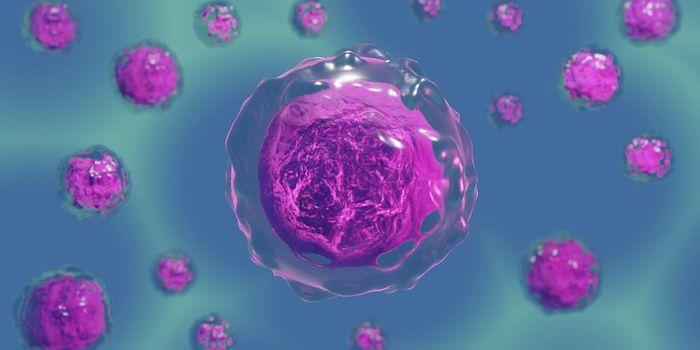Biomarkers in Umbilical Cord Blood Could Improve Care of Neonates
It's estimated that around 13.4 million infants are born prematurely around the world, and preterm birth complications are a major cause of mortality for these babies. Preterm births can happen both spontaneously, or because of a medical condition that leads clinicians to induce labor or perform a caesarean birth.
Umbilical cord blood contains proteins that could help clinicians identify infants that are at risk of premature birth, according to new research published in Scientific Reports. The care of preterm infants has improved in recent years. But those born prematurely, or before 37 weeks, are still at higher risk of a variety of illnesses, compared to those born after a full term pregnancy.
Anyone born before 28 weeks is considered extremely preterm, while very preterm includes those born between 28 and 32 weeks, and moderate or late preterm borth occur during weeks 32 to 37.
In this work, the researchers used mass spectrometry to analyze the proteins in umbilical cord samples. They were collected from 150 infants who were born anywhere from 25 to 42 weeks of gestation between 2008 and 2019, to compare the proteomics of those born preterm to those born after a normal term. This showed that there are variations in the levels of certain proteins during gestation.
These samples can provide a window into the health of the fetus at birth, said Leena Mithal, MD, an associate professor at Northwestern Medicine.
"You get a snapshot of the proteome at birth, at that specific point in gestational development that's not impacted by all the events that happen after the baby is born, transitioning to postnatal life and often unstable," explained Mithal.
There were higher levels of proteins that are found in the extracellular matrix of cells and blood vessels, which are supporting structural development and growth at earlier gestational stages, for example. But later in gestation, immune and inflammatory signaling proteins became more abundant.
"This characterizes how the proteins that function in the immune system change over gestational development and can help us understand what's lacking in a baby that's born very early and compared to the immune state of full-term infants," suggested Mithal.
These biomarkers need to be replicated and confirmed, but they may eventually help scientists provide better care to those at risk of preterm birth, since infection, brain bleeds and other complications are more common in preterm infants.
"The goal is a cord blood diagnostic test at the time of birth to help us stratify risk for early-onset infection and provide a precision medicine approach to targeted antibiotic therapy," Mithal said.
Sources: Northwestern University, Scientific Reports









